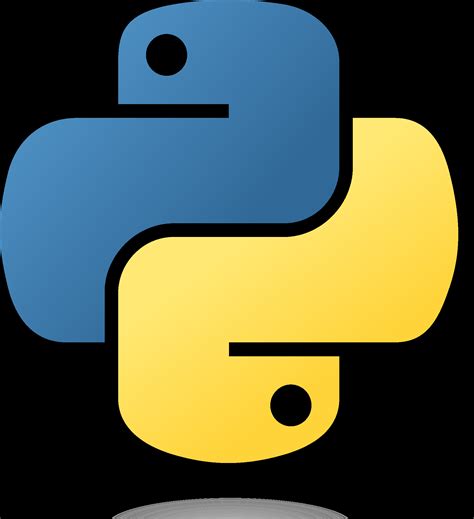In today's fast-paced digital landscape, staying organized and efficient is crucial for success. One tool that has gained popularity in recent years is Notion, an all-in-one workspace that allows users to create custom workflows, databases, and pages. In this article, we'll delve into the Notion tech stack, exploring its features, benefits, and how to build a workflow that suits your needs.
What is Notion?
Notion is a cloud-based productivity tool that allows users to create custom workflows, databases, and pages. It's an all-in-one workspace that combines the features of notes, tasks, databases, and Kanban boards, making it an ideal solution for individuals and teams looking to streamline their workflow.
Key Features of Notion
Notion offers a wide range of features that make it an ideal tool for building custom workflows. Some of its key features include:
- Blocks: Notion's core building blocks are its pages, which can be customized with text, images, videos, and other media.
- Databases: Notion allows users to create custom databases, which can be used to store and organize data.
- Templates: Notion offers a range of pre-built templates that can be used to create custom workflows, databases, and pages.
- Collaboration: Notion allows real-time collaboration, making it easy to work with team members or clients.
- Integrations: Notion integrates with a range of third-party apps and services, including Google Drive, Trello, and Slack.
Benefits of Using Notion
Notion offers a range of benefits that make it an ideal tool for building custom workflows. Some of its benefits include:
- Customization: Notion's flexibility allows users to create custom workflows that suit their needs.
- Organization: Notion's all-in-one workspace makes it easy to stay organized and focused.
- Collaboration: Notion's real-time collaboration features make it easy to work with team members or clients.
- Scalability: Notion's cloud-based infrastructure makes it easy to scale workflows as needed.
Building a Workflow in Notion
Building a workflow in Notion is a straightforward process that requires some planning and creativity. Here are the steps to follow:
- Define Your Goals: Before building a workflow in Notion, it's essential to define your goals. What do you want to achieve with your workflow? What tasks do you need to complete?
- Choose a Template: Notion offers a range of pre-built templates that can be used to create custom workflows. Choose a template that suits your needs.
- Customize Your Template: Once you've chosen a template, customize it to suit your needs. Add or remove blocks, databases, and pages as needed.
- Create a Database: Notion's databases are powerful tools that can be used to store and organize data. Create a database to store your data.
- Add Tasks and Pages: Add tasks and pages to your workflow as needed. Use Notion's blocks to create custom pages and tasks.
- Integrate with Third-Party Apps: Notion integrates with a range of third-party apps and services. Integrate with apps like Google Drive, Trello, and Slack to streamline your workflow.
Tips and Tricks for Building a Workflow in Notion
Here are some tips and tricks for building a workflow in Notion:
- Keep it Simple: Don't overcomplicate your workflow. Keep it simple and focused on your goals.
- Use Templates: Notion's templates are a great way to get started with building a workflow. Use them to create custom workflows.
- Customize Your Workflow: Notion's flexibility allows users to customize their workflows. Don't be afraid to experiment and try new things.
- Collaborate with Others: Notion's real-time collaboration features make it easy to work with team members or clients. Use them to streamline your workflow.

Common Use Cases for Notion
Notion is a versatile tool that can be used in a range of contexts. Here are some common use cases for Notion:
- Project Management: Notion is a popular tool for project management. Use it to create custom workflows, databases, and pages.
- Task Management: Notion is a great tool for task management. Use it to create custom tasks and pages.
- Knowledge Base: Notion is a great tool for creating knowledge bases. Use it to store and organize information.
- Personal Productivity: Notion is a popular tool for personal productivity. Use it to create custom workflows, databases, and pages.
Alternatives to Notion
While Notion is a powerful tool, it's not the only option available. Here are some alternatives to Notion:
- Trello: Trello is a popular project management tool that offers a range of features, including boards, lists, and cards.
- Asana: Asana is a popular task management tool that offers a range of features, including workflows, databases, and pages.
- Evernote: Evernote is a popular note-taking tool that offers a range of features, including notes, databases, and pages.
- Airtable: Airtable is a popular database tool that offers a range of features, including databases, pages, and workflows.
Conclusion
Notion is a powerful tool that offers a range of features and benefits. Its flexibility, customization options, and collaboration features make it an ideal tool for building custom workflows. Whether you're a project manager, task manager, or personal productivity enthusiast, Notion is definitely worth considering.






FAQ
What is Notion?
+Notion is a cloud-based productivity tool that allows users to create custom workflows, databases, and pages.
What are the benefits of using Notion?
+Notion offers a range of benefits, including customization, organization, collaboration, and scalability.
How do I build a workflow in Notion?
+Building a workflow in Notion involves defining your goals, choosing a template, customizing your template, creating a database, adding tasks and pages, and integrating with third-party apps.
I hope this article has provided you with a comprehensive guide to building a workflow in Notion. Whether you're a project manager, task manager, or personal productivity enthusiast, Notion is definitely worth considering.
